Cardiovascular System
All information about "Cardiovascular System" and the related magazine articles can be found here.
Our articles are written clearly and link to scientific studies where relevant. This is how we meet our own standards: we regularly deliver new, high-quality content for you—free of charge, no sign-up required, with the highest possible benefit to you.

Getting all the vitamin B12 you need in a vegan diet
Those on a vegan or vegetarian diet should pay more attention to whether they have an adequate supply of vitamin B12. Find out more now
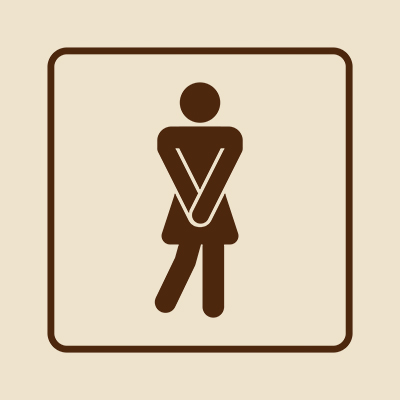
Get rid of bladder infections!
Almost every woman has had a urinary tract infection, and some suffer from it regularly. Find out why we should take this infection seriously, how it develops and what types of treatment are available!

About vitamin B12 deficiency and pain
We all know that B vitamins are very important for our health. But many people don't realise how serious a vitamin B12 deficiency can be! Not just for vegetarians, vegans, pregnant or breastfeeding women, diabetics or even alcohol drinkers!

L-threonine - an essential amino acid with important functions
Amino acids are an important building block for our health. Which ones can the body produce and which ones need to be ingested in order to fulfil all functions? What are the risks for vegans and what are the dangers of a deficiency? Our report answers the most important questions!
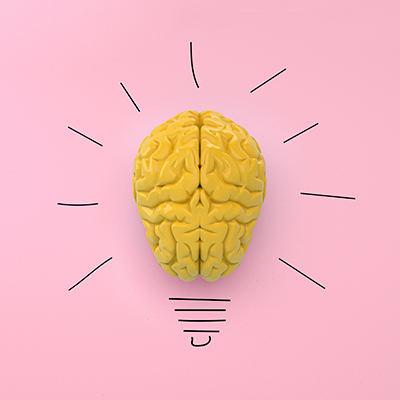
Why NADH is important for the body
They are the basic building blocks of the body: cells. Their job is to absorb nutrients and use their energy for metabolism. An important factor in this process is NADH.

The link between L-Arginine and women's health
The amino acid L-Arginine is primarily associated with muscle growth and improved endurance. Some studies suggest that it may also have a positive effect on women's health.

Zinc deficiency: important facts for your health
Discover the effects of zinc deficiency on your health and how to recognise and treat it. Find out why zinc is an essential trace element for your body and mind, and how to maintain optimal zinc levels. Improve your health with this comprehensive information on zinc deficiency!

Fitter and stronger with L-Carnosine?
Although carnosine can be produced by the human body, it is a popular supplement among athletes - in powder or capsule form. In this article, you can find out what specific effects it has on performance and what other functions it is involved in.

Magnesium: How does it affect the menstrual cycle?
Many women are familiar with them and suffer from them every month: Menstrual cramps. Read more about the processes in your body during your period, discover natural approaches to relieve the pain and find out what role magnesium and other nutrients play in this. Improve your quality of life during your period in a completely natural way!
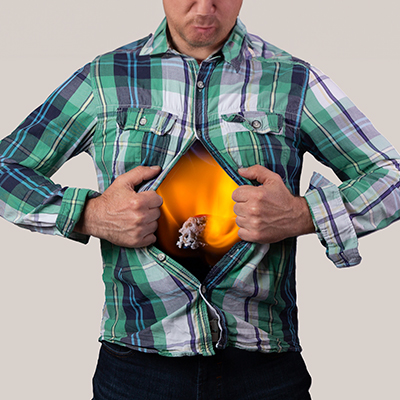
Heartburn - an annoyance and a burden!
Many people suffer from heartburn after a hearty meal. You have a glass of wine or beer, treat yourself to a nice dessert or even a little digestive liqueur - and there it is again: a sharp pain, pressure in the stomach and sometimes even nausea: heartburn!
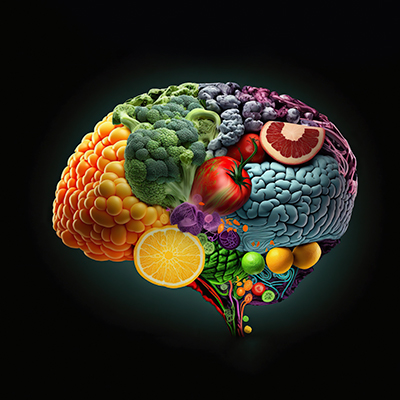
Vitamin B1 deficiency - here too
B vitamins are essential for our bodies! Not only do many metabolic processes depend on them, but so do our nerves. If you think vitamin B1 deficiency is only a problem in developing countries, think again! Find out more here.

Tribulus Terrestris is often promoted for muscle building and libido.
When it comes to muscle building and sexual health, many people prefer Tribulus Terrestris to synthetic products. But what about the real effects of the natural supplement?

Iron deficiency anaemia
Iron is an essential trace element. But why is it so important for survival and how is it linked to anaemia or even depression? Here we explain the most important consequences of iron deficiency!
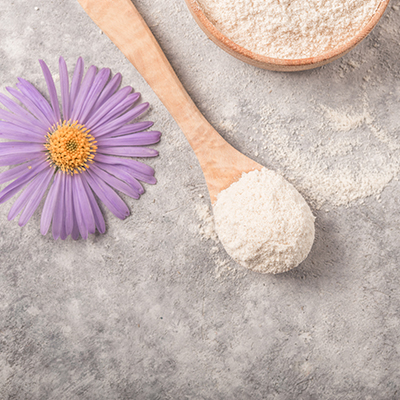
Collagen hydrolysate - what to look out for
Hydrolysed collagen is more easily absorbed by the body than normal collagen. All you need to know about the supplement

Diet for osteoarthritis - how supplements can help
Now there is support for the joints - with a healthy diet and the right supplements.

Irritable bowel syndrome - causes, symptoms and treatment

Acidic foods
What is an acid-base balance? And how can I achieve it? Which foods are metabolised in an acidic way and which in an alkaline way? Our report answers the most important questions on these topics!

SAMe - for more energy and a better mood
Learn how the amino acid S-adenosylmethionine (SAMe) can support your mood, energy levels and liver function.
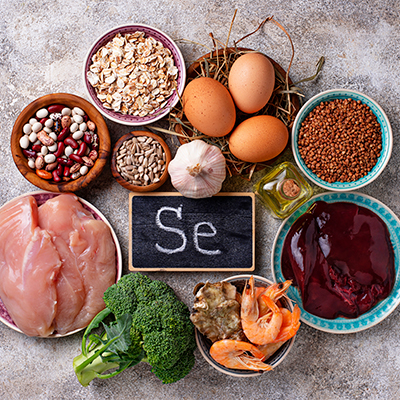
Why the body needs a good supply of selenium
Immune defence, the cardiovascular system and the thyroid - the trace element selenium plays an important role in many bodily functions.
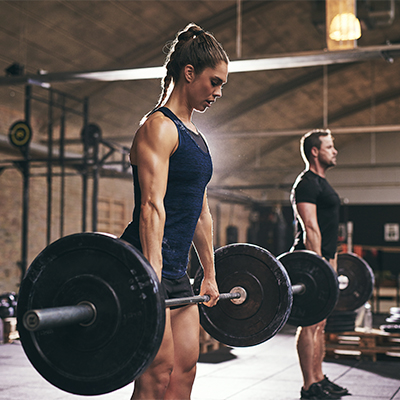
Lose weight with amino acids
We have learned that our muscles use energy. The more muscular the body, the more energy it can use. Find out how amino acids are involved here!

Tryptophan - for wellbeing and sleep

What should people with diabetes not eat?
Everyone talks about sugar, but what does it mean when blood sugar levels become a serious problem? Find out all you need to know about diabetes!

Nattokinase - what is the fibrinolytic protein?
The enzyme nattokinase, derived from the soya bean dish natto, is believed in Japan to be one of the reasons for longevity. Find out more here!

Copper deficiency - causes, symptoms and long-term effects
Copper is essential for our health. Not only does the immune system need this trace element, but many other processes in the body do too. Find out here why a copper deficiency is often discovered too late and what the consequences are!
Cardiovascular system: our body in motion
Have you ever wondered how your body functions day after day without you consciously having to think about it? Our cardiovascular system takes care of that. It is the transport system of our body and is responsible for supplying every single cell with essential nutrients and oxygen. If you want to understand exactly how this vital system works, you will find answers here.
The heart is a tireless motor
At the center of the cardiovascular system is the heart, a muscle the size of a fist that tirelessly pumps blood throughout our body. Let's take a closer look at how this organ works.
Structure of the heart
The heart has four chambers: the right atrium, the right ventricle, the left atrium and the left ventricle.
These four chambers work together to pump blood throughout the body: the atria draw in blood while the ventricles pump it out. Heart valves, which act like one-way streets to prevent blood from flowing backwards, are located between the atria and the chambers and at the exit of the chambers.
How does the heart work?
The heart works like a highly efficient double pump. The right side of the heart pumps deoxygenated blood to the lungs, while the left side pumps oxygen-rich blood to the rest of the body. With each heartbeat, the heart chambers contract and pump blood into the arteries. They then relax and refill with blood from the atria.
This process is repeated about 60 to 80 times per minute at rest, but can increase to up to 200 beats per minute during physical exertion. The heart constantly adjusts its output to the needs of the body and can significantly increase the amount of blood pumped when needed.
The circulatory system as a transportation system
The circulatory system is a closed system of blood vessels that runs through the entire body. It can be divided into two main circuits: the systemic circulation (also called the great circulation) and the pulmonary circulation (also called the small circulation).
Great circle: supply of the body
The body's circulatory system begins in the left ventricle of the heart. From here, oxygen-rich blood is pumped through the aorta, the largest artery in our body, to all organs and tissues. The aorta branches out into smaller and smaller arteries, which eventually merge into the finest blood vessels, the capillaries.
In the capillaries, oxygen and nutrients are exchanged for carbon dioxide and waste products. The walls of the capillaries are so thin that oxygen and nutrients can easily diffuse into the surrounding tissue.
At the same time, the capillaries absorb carbon dioxide and other waste products from the cells. The now oxygen-poor blood flows through small veins into ever larger veins and finally back to the right atrium of the heart. From there it enters the right ventricle to start the cycle again.
Small circulation: oxygen uptake in the lungs
The pulmonary circulation, also known as the small circulation, begins in the right ventricle of the heart. From here, the deoxygenated blood is pumped into the pulmonary arteries. These branch out into a fine network of capillaries in the lungs, surrounding the pulmonary alveoli.
In the alveoli, the gas exchange takes place: the blood releases carbon dioxide and absorbs fresh oxygen. This process occurs by diffusion – the oxygen from the inhaled air migrates into the blood, while the carbon dioxide passes from the blood into the exhaled air.
The now oxygen-rich blood can flow back to the left atrium of the heart via the pulmonary veins. From there, it enters the left ventricle to be pumped back into the great circulation.
The direction of blood flow
Our blood takes a specific path through our body:
- Oxygen-rich blood leaves the left ventricle.
- It flows through the aorta and arteries throughout the body.
- The exchange of substances takes place in the capillaries.
- Deoxygenated blood collects in the veins.
- It enters the right atrium and the right ventricle.
- From there it is pumped into the lungs.
- In the lungs, it absorbs oxygen and releases carbon dioxide.
- The oxygen-rich blood returns to the left atrium.
- The cycle begins again.
The importance of blood pressure
Blood pressure plays a crucial role in the functioning of the cardiovascular system. It ensures that blood flows through the blood vessels at a sufficiently high pressure to reach all organs. Blood pressure is created by the pumping force of the heart and the resistance of the blood vessels.
With each heartbeat, two pressure values are created:
- Systolic pressure: this occurs when the heart contracts and pumps blood into the arteries.
- Diastolic pressure: this occurs when the heart relaxes and refills with blood.
Normal blood pressure is around 120/80 mmHg (millimeters of mercury). However, high blood pressure can damage blood vessels and lead to cardiovascular disease.
Blood vessels: a complex network
Blood vessels form an elaborate transportation system that permeates the entire body. There are three main types of blood vessels:
- Arteries: They carry oxygen-rich blood away from the heart to organs and tissues. Arteries have thick, elastic walls to withstand the high pressure of the blood pumped by the heart.
- Veins: These carry deoxygenated blood back to the heart. Veins have thinner walls than arteries and contain valves that prevent the blood from flowing backwards.
- Capillaries: These are the smallest blood vessels. Their paper-thin walls allow the exchange of oxygen, nutrients and waste products between blood and tissue.
Interesting facts about the cardiovascular system
- At rest, an adult's heart beats about 100,000 times a day.
- Over the course of an average lifetime, the heart beats about 3 billion times.
- The total length of all blood vessels in the human body is about 100,000 kilometers. This length is more than twice the circumference of the earth.
- The cardiovascular system pumps the entire amount of blood, about 5 to 6 liters, through the body once every minute.
- The capillaries are so narrow that red blood cells can only pass through them in a single row.
Cardiovascular diseases are the most common form of illness.
Unfortunately, cardiovascular diseases are among the most common health problems in our modern society. They are the leading cause of death worldwide.
The most common cardiovascular diseases include:
- Hypertension: A chronic increase in blood pressure in the arteries is a risk factor for further cardiovascular diseases.
- Coronary heart disease: A narrowing of the coronary arteries that leads to reduced blood flow in the heart muscle.
- Heart attack: An acute occlusion of a coronary vessel, leading to an undersupply and possible damage of the heart muscle tissue.
- Stroke: A sudden interruption of the blood supply to the brain, which can lead to neurological deficits.
- Heart failure: A diminished pumping function of the heart, leading to an insufficient supply of blood and oxygen to the body.
Our bowel health also plays a crucial role in our general well-being. It should therefore not be neglected. A strong immune system is equally important.
Risk factors for cardiovascular disease
There are a number of risk factors that can lead to cardiovascular disease:
- Hypertension: Chronically elevated blood pressure puts sustained strain on blood vessels and organs.
- Smoking: This harmful habit damages blood vessels and significantly increases the risk of cardiovascular disease.
- Obesity: Excess body fat puts additional pressure on the cardiovascular system.
- Lack of exercise: A lack of physical activity has a long-term negative impact on heart health.
- Unhealthy diet: A diet high in saturated fats and sugar promotes the development of cardiovascular diseases.
- Diabetes mellitus: This metabolic disorder can damage blood vessels and significantly increase the risk of cardiovascular disease.
- High cholesterol levels: High blood cholesterol levels promote the formation of deposits in blood vessels.
- Stress: Stress: Prolonged mental and physical stress can have a negative effect on the cardiovascular system. You should therefore try to avoid stressful situations as much as possible.
- Genetic predisposition: Hereditary predispositions can increase an individual's risk of developing certain cardiovascular diseases [1].
Preventing cardiovascular disease: how does it work?
How can you support your cardiovascular system? There are numerous ways to strengthen your cardiovascular system and keep it healthy. One of the most important things you can do is exercise regularly. Moderate physical activity strengthens the heart and improves blood flow. Experts recommend at least 150 minutes of moderate or 75 minutes of vigorous exercise per week. Suitable activities include walking, swimming, cycling and dancing.
A balanced diet is equally important. A diet rich in fruit, vegetables and whole grain products helps to keep your blood vessels healthy. Reduce your consumption of saturated fats, sugar and salt. A vitamin K2 deficiency can also have a negative effect on our cardiovascular system.
Because stress can have a negative effect on the cardiovascular system, you should make sure you have an effective stress management strategy. Good ways of reducing stress include meditation, yoga or regular relaxation exercises. Getting enough sleep also plays an important role in the regeneration of the entire body, including the cardiovascular system. Aim for 7-9 hours of sleep per night.
You should also have your blood pressure and other relevant values checked regularly by your doctor. The early detection and treatment of risk factors can prevent cardiovascular diseases.
And very importantly: if you smoke, giving up is one of the most effective measures for your heart health. Smoking damages the blood vessels and significantly increases the risk of cardiovascular disease. Moderation is also the order of the day when it comes to alcohol consumption, as excessive consumption can increase blood pressure and damage the heart. Finally, weight control plays an important role. Excess weight puts additional strain on the cardiovascular system. For example, have you ever tried losing weight with amino acids?
By incorporating these recommendations into your daily routine, you can actively help to support your cardiovascular system and improve your overall health [2].
The future of cardiovascular medicine
Research is constantly advancing. The future of cardiovascular medicine also promises significant progress in various areas:
Personalized medicine: genetic analysis can be used to tailor treatments to individual patients. These customized therapies enable more precise and effective treatment by taking into account the specific genetic characteristics and risk factors of each patient.
New drugs: innovative active ingredients promise better treatment options for cardiovascular diseases. Researchers are developing targeted drugs that influence specific molecular mechanisms, thus enabling more effective therapy with fewer side effects [3].
Minimally invasive procedures: Modern techniques enable less invasive surgery on the heart and blood vessels. These procedures not only reduce surgical trauma and recovery time, but also open up treatment options for patients who are not candidates for conventional surgery.
Artificial intelligence: AI systems can help identify risks early and optimize treatments. By analyzing large amounts of data, AI algorithms can detect subtle patterns and assist doctors with diagnosis and treatment planning, leading to improved patient care.
Regenerative medicine: Researchers are working on methods to regenerate or replace damaged heart tissue. These groundbreaking approaches, such as the use of stem cells or cultured tissue, could revolutionize the treatment of heart attacks and chronic heart failure in the future [4].
Our cardiovascular system: an amazing system
The cardiovascular system is truly a wonder of nature. It works tirelessly to supply every cell in our body with essential nutrients. Unfortunately, our cardiovascular system is also susceptible to a variety of diseases.
Fortunately, we can prevent cardiovascular disease with fairly simple measures. This is particularly effective if we understand how it works. Then we can consciously support it and thus maintain our health in the long term.
Current research on cardiovascular diseases also promises some positive developments and advances in treatment options for the future. Nevertheless, we should not underestimate what we can do for our health ourselves with fairly simple means.
So, what are you waiting for?
Sources
[1] https://pubmed.ncbi.nlm.nih.gov/31112654/
[2] https://pubmed.ncbi.nlm.nih.gov/34922952/
[3] https://pubmed.ncbi.nlm.nih.gov/35879138/
[4] https://dzhk.de/newsroom/aktuelles/news/artikel/stammzellen-fuer-das-herz-neue-methoden-zur-regeneration-von-herzmuskelgewebe
